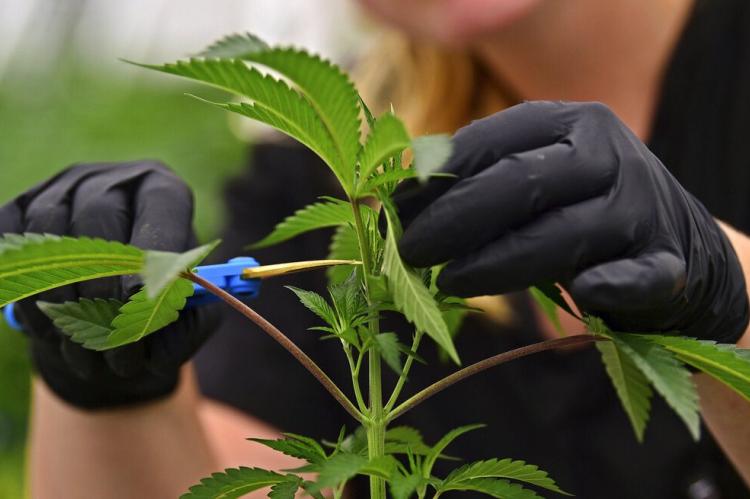Missouri health officials tout medical marijuana program's first year in annual report
As it contends with the ongoing coronavirus pandemic, Missouri's health department published its first constitutionally required annual report to the governor on the fledgling medical marijuana program.
The report, released late Friday, covers the program's first official year, which began on Dec. 6, 2018. That was the date that the voter-approved medical cannabis amendment, known as Article 14 (or by its ballot-box designation, Amendment 2), went into effect. The report ends with Dec. 5, 2019, shortly before the program awarded licenses to businesses wanting to legally sell or grow the cannabis plant and related products in the Show-Me State.
Beginnings, challenges of establishing medical marijuana
In a news release, Missouri authorities touted the track record of the Department of Health and Senior Services in meeting several deadlines mandated by Article 14, notably the deadline for accepting applications for qualifying marijuana patient ID cards on July 4, 2019, and the deadline to begin taking full applications for commercial facility licenses, which fell on Aug. 3, 2019.
As the News-Leader previously reported, based on Article 14 language, the state health department circulated a timeline throughout 2019 stating Dec. 31 of that year was the "deadline for approval" for medical marijuana business licenses. But three of the six types of those licenses, including the ones for dispensaries and infused-product manufacturers, were awarded in January 2020.
“I am extremely proud of our team and the program that we have developed," said Lyndall Fraker, a former Marshfield-area lawmaker and Walmart manager appointed to lead the state Section for Medical Marijuana Regulation. "It has been an honor to lead this hardworking group of dedicated team members as we bring this new industry to Missouri in a well-regulated, safe, and patient-focused program."
A number of grass-roots pro-cannabis community members and state lawmakers in both major political parties have reacted to the Missouri marijuana program's rollout with criticism, however.
The Kansas City Star reported in early May that the Missouri House oversight committee expanded its probe into the marijuana program to include the governor's office, citing "too many unanswered questions."
And as the News-Leader previously reported, by that time the House oversight committee had held multiple hearings on the program, as lawmakers grilled Fraker and other cannabis program officials. Major concerns included whether conflicts of interest or fairness issues tainted the marijuana business license application process. More than 2,200 applications came in for just a few hundred licenses available.
DHSS said that during the first program year, the authorities approved 23,269 patient and caregiver ID cards. By the end of May, roughly 55,000 patients and caregivers had applied for the ID cards, which make it lawful for patients to possess and use cannabis as treatment.
A much-criticized University of Missouri study had predicted just 26,000 patients would enroll in the program by 2022.
“As we have worked to implement this program, Missouri patients have always been our north star through every step of the way,” said Randall Williams, a physician who directs the Missouri health department.
Williams added, “We want to ensure that we build a program that is safe, accessible and in line with our mission of protecting the health of Missourians.”
- Log in to post comments

